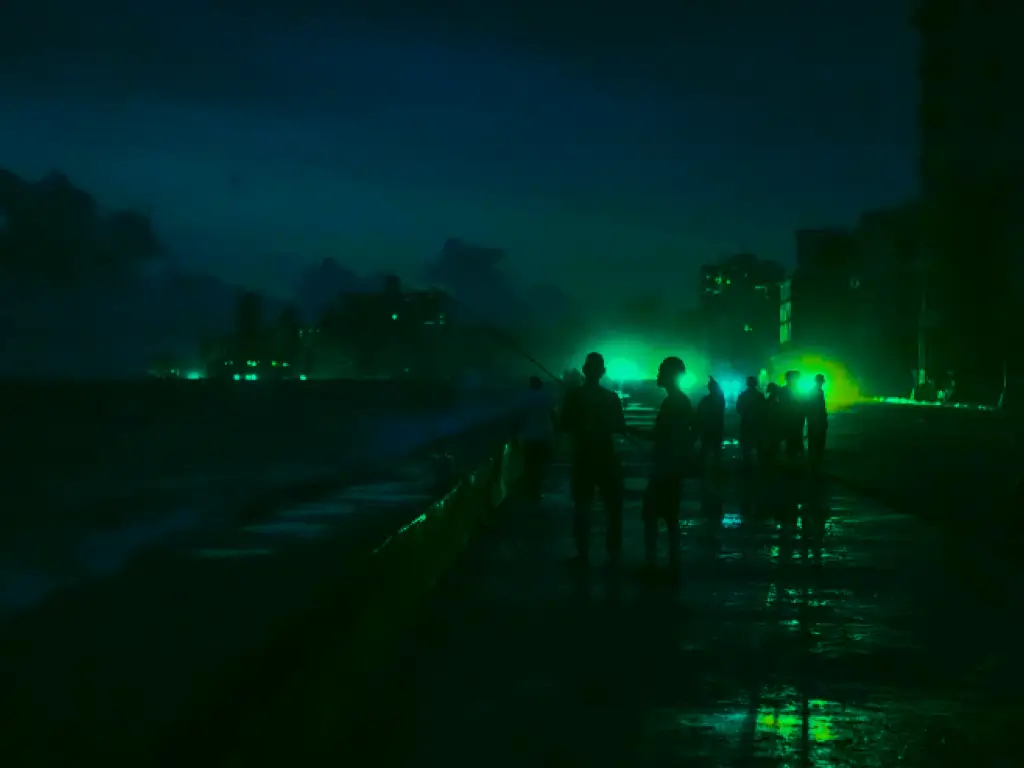Table of Contents
It’s like a scene from a science fiction movie; Cuba once again finds itself in the dark after its main power station lets it down on Friday. The power grid crashed around 11:00 local time; more than 10 million people remain in the dark, not knowing when power will be restored.
As per the energy ministry of Cuba, which has been casually informing on social media of the news, nobody seems to know for how long this latest blackout will continue. The island has been operating with rolling blackouts for several months now, and Prime Minister Manuel Marrero declared an “energy emergency” yesterday.
Havana Struggles to Stay Lit
Few buildings in Havana have electricity but, most parts of the country are in complete darkness today. For everyone else, it’s candles and a mobile phone torch, assuming they have a signal at all. Across in Matanzas, where the largest power plant on the island Antonio Guiteras has surrendered a similar situation, people have resorted to boiling water in the dark, and people are using their cell phones for lighting.
As would be expected, President Miguel Díaz-Canel Bermúdez stated this scenario as his “absolute priority.” After the storm, in a social media post, he promised the people that everyone would “work until the power is back.” Whether or not anyone believes him at this point is another story.
A Long, Dark Weekend
It is now a long wait, and with officials doing desperate things, the island too faces the threat. Children cannot go to school, various events are not taking place, and people are encouraged and sometimes forced to avoid going to work and other places to avoid using electricity. And if you thought you were going to Cuba to dance the weekend away in some of the island’s popular nightclubs, think again; they will remain shut until at the very least Monday.
Local media is even encouraging Cubans to switch off appliances such as fridges and ovens during peak hours. Although easier said than done in a country where refrigeration is often the only way to preserve food, especially in the warmer months.
Many Cubans reacted to this, saying This is Insanity.
The frustration is palpable. Eloy Fon, an 80-year-old pensioner in central Cuba, summed it up: “This is crazy. We currently have an utterly insecure electricity system… we run our households from day to day with no protection.
That is a nightmare for Bárbara López, a 47-year-old digital content creator. CNA: It’s the worst I’ve seen. I have been nursing for 47 years. For instance, I was not able to work for two days. They have screwed up big time this time. Our situation is even worse now; we don’t even have mobile data.
A Decade of Disquiet All Hardened Into A Crisis
This blackout comes after Cuba faced many years of degrading infrastructure, fuel shortages, and increased electricity demand. On Thursday, Prime Minister Marrero lamented the fuel crisis as being at the heart of the issue, yet few appeared to be shocked.
Alfredo López Valdés, the head of the National Electric Union (UNE), accepted the fact. The island has been on the verge of collapse for several years now, and the present crisis only adds to the existing scarcity.
Stocks Reach a New High Will Protests Intensify Next?
A Cuban expert believes long blackouts are bad for the country. The Cuban government understands only too well that the maintenance of electricity is essential for the preservation of order. The last time the power went out for days in July 2021, people protested for days thousands of them because people lost their cooled food, it was hot as hell, and water pumps stopped working.
The blackout also means no gasoline, so people can’t drive to work or any other place for that matter. Nor can there be electric fans or air conditioners in Cuba’s climate to aggravate an already sordid picture.
Over the past several months and even weeks, the Cubans are no longer afraid to express their dissatisfaction with the government. There are even those who are ready to go on the street and provoke revolt against the regimen if the living conditions remain intolerable. It was only last March that Santiago witnessed hundreds of Cubans protesting in a rather unusual manner over blackouts and food scarcity. Could history repeat itself?










